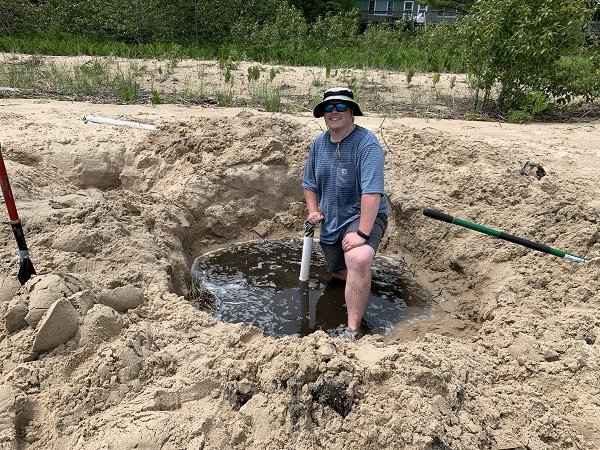Great Lake Resilience
 Dr. Daria Kluver, Dr. Wendy Robertson, and a group of Earth and Atmospheric Science undergraduates form a team to research climate change and its impact on the Great Lakes wetlands. The research project, funded by CMU’s Institute for Great Lakes Research, explores how changes in weather and climate affect the health and sustainability of the wetlands. The goal of their work is to help scientists, planners and managers identify the most vulnerable wetland systems and devise strategies to protect them from future climatic shifts.
Dr. Daria Kluver, Dr. Wendy Robertson, and a group of Earth and Atmospheric Science undergraduates form a team to research climate change and its impact on the Great Lakes wetlands. The research project, funded by CMU’s Institute for Great Lakes Research, explores how changes in weather and climate affect the health and sustainability of the wetlands. The goal of their work is to help scientists, planners and managers identify the most vulnerable wetland systems and devise strategies to protect them from future climatic shifts.
Great Lakes wetlands are an integral part of Michigan’s coastal communities as many people rely on the lakes for food, recreation and economic security. Wetlands also provide ecosystem services like filtering water, cycling nutrients, providing habitats for aquatic species, and decreasing wind and wave erosion on the shores. The Great Lakes water levels change on time scales ranging from hourly to seasonal and beyond. Short-term factors include winds and storms, while more long-term factors include the rain cycle and glacial rebound, or the upward movement of land depressed by glaciers during the ice age, due to climate change. Maintaining ecosystem function in the face of these changes in water level requires a significant amount of resilience at the point where land transitions to water.
The team’s research focuses on how wetlands respond to fluctuating water levels as the weather and climate change. The team has spent the last 5 years collecting enough data on the broad range of weather and climate scenarios in order to understand how wetlands are impacted. To collect data, the team set up stations in the wetlands to examine movement in water and energy. The instruments measure precipitation, lake levels, and ground water, which is used to determine water movement. The instruments also measure energy from the sun, air temperature, soil temperature, and water temperature, which helps explain energy movement. Together, the water and energy data help researchers discover how changes in weather and climate impact the wetlands.
Dr. Kluver, Dr. Robertson, and the students have worked together as a team installing stations, digging wells, maintaining instruments and collecting data. As a climate scientist, Dr. Kluver’s specialty in the project is examining data to determine trends in weather and climate data, while Dr. Robertson’s niche is working on water data and building models of wetland hydrology. The undergraduates play a vital role in the project, assisting with field work and data analysis. The team also dedicates a great amount of time to station maintenance, as waves, ice and dune migration take a significant toll on the equipment. Each spring, they visit stations to assess the condition of the instruments and repair damages.
“I hope that through this research the people who call the Great Lakes their home can get a better understanding of how changes to the lakes impact wetlands,” Dr. Kluver said.
At CMU, we do research and real-world results.
Story by ORGS intern Brittney Rudat
March 2021